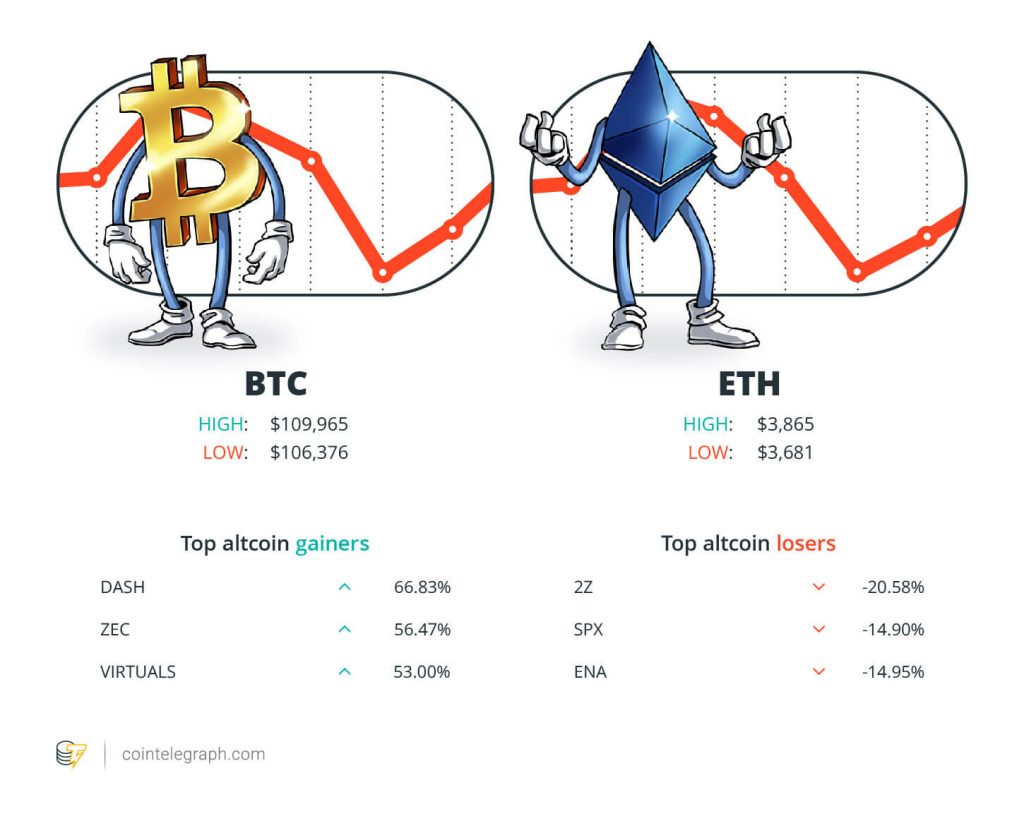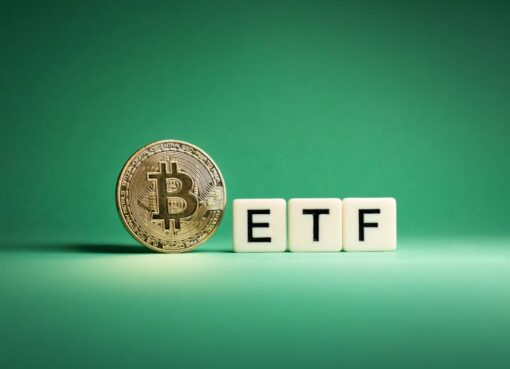Top Stories This Week
Bybit halts new user onboarding in Japan, citing ‘emerging’ regulations
Bybit, the world’s second-largest crypto exchange by trading volume, has announced it will pause new user registrations in Japan starting Oct. 31, as it adapts to new regulations from the country’s Financial Services Agency.
The company said the move is part of its “proactive approach” to align with Japan’s emerging regulatory framework for digital assets, according to a Wednesday announcement.
“It has always been Bybit’s commitment to operate responsibly and in compliance with local laws and regulatory expectations,” the exchange said.
Existing Japanese customers will not be affected for now, with all current services remaining operational. Bybit said it will share further updates as discussions with regulators progress.
Nigerian fintech plans African stablecoin payment system with Polygon: Report
Flutterwave, Nigeria’s largest fintech company, is developing a cross-border payment platform powered by stablecoins, highlighting the growing role of blockchain technology in streamlining payments across Africa.
The company is partnering with Polygon Labs to launch the service across its 34-country network, Bloomberg reported Thursday. Polygon’s blockchain infrastructure, built to provide scalable, faster and cheaper transactions on Ethereum, will be used to enhance settlement speed and efficiency.
Flutterwave CEO Olugbenga Agboola said the move could transform the flow of funds across the continent, enabling businesses and consumers to bypass the high costs and delays that often plague traditional payment systems.
“Stablecoin adoption will drive more flows into Africa,” Agboola said, adding that the initiative “has the potential to 10x the volumes we are currently doing.”
MEXC apologizes to ‘White Whale’ trader over $3M freeze
About three months after pseudonymous crypto trader the White Whale reported that the MEXC exchange had frozen about $3 million worth of their holdings, a representative publicly apologized and released the funds.
In a Friday X post, MEXC Chief Strategy Officer Cecilia Hsueh said the exchange “f***ed up” in handling a situation with the crypto user. In July, MEXC froze $3.1 million of the user’s funds, allegedly due to the exchange’s “risk control rules.”
“We apologize to [the White Whale], and his money is already released,” said Hsueh. “He can claim it at any time. I messed up in communicating with him. I got emotional, and I shouldn’t have.”
Bitcoin’s 4-year cycle isn’t dead, expect a 70% drop next downturn: VC
The price of Bitcoin will continue to experience cyclical booms and busts, resulting in a drawdown of up to 70% during the next market downturn, according to Vineet Budki, CEO of venture firm Sigma Capital.
There will be a BTC retracement of 65% to 70% in the next two years because traders do not understand the asset they are holding, Budki told Cointelegraph at the 15th Global Blockchain Congress in Dubai, UAE. He said:
“Bitcoin will not lose its utility if it comes down to $70,000. The problem is that people don’t know its utility, and when people buy assets that they don’t know and understand, they sell them first; that is where the selling pressure comes from.”
Poor UX is causing stablecoin ‘ticker fatigue’: ZachXBT
The number of different stablecoin tickers and token standards is fragmenting liquidity across the crypto ecosystem and burdening users with a poor experience that is costly, technical, and time-consuming, according to onchain sleuth ZachXBT.
Cross-chain bridging restrictions, gas and transaction fees that must be paid in the native token of the blockchain being used, and a lack of universal token support across exchanges are all obstacles users face in transferring stablecoins across the crypto ecosystem, ZachXBT said. He gave the following example:
“Imagine you receive USDPT to your Solana address but realize your wallet doesn’t have USDPT on the default token list. You also need gas, so you bridge ETH from Ethereum and wait several minutes, and want to swap USDPT for USD on a centralized exchange.”
Winners and Losers
At the end of the week, Bitcoin (BTC) is at $109,965, Ether (ETH) at $3,865 and XRP at $2.50. The total market cap is at $3.71 trillion, according to CoinMarketCap.
Read also
Among the biggest 100 cryptocurrencies, the top three altcoin gainers of the week are Dash (DASH) at 66.83%, Zcash (ZEC) at 56.47% and Virtuals Protocol (VIRTUALS) at 53.00%.
The top three altcoin losers of the week are DoubleZero (2Z) at 20.58%, SPX6900 (SPX) at 14.90% and Ethena (ENA) at 14.95%. For more info on crypto prices, make sure to read Cointelegraph’s market analysis.

Most Memorable Quotations
“For the last 20 years. We’ve been gradually losing our digital freedoms.”
Pavel Durov, Telegram founder
“Generally, we don’t have any plans to pursue M&A [merger and acquisition] activity, even if it would look to be potentially accretive.”
Michael Saylor, Strategy chairman
“I was a little distracted because I was tracking the predictions market about what Coinbase will say in their next earnings call, and I just want to add here, the words Bitcoin, Ethereum, blockchain, staking, and Web3, make sure we get those in before the end of the call.”
Brian Armstrong, Coinbase CEO
“Overall, we remain moderately risk-on and see a credible path for Bitcoin to break its all-time high before year-end.”
Matt Mena, 21Shares market analyst
“Most stablecoin demand comes from outside the US, expanding dollar dominance globally, not competing with your local bank.”
Faryar Shirzad, Coinbase chief policy officer
“Altcoin ETF inflows are the inevitable next step after Bitcoin and Ethereum ETFs proved institutional demand.”
Leon Waidmann, head of research at Web3 analytics firm On chain
Top Prediction of The Week
Quantum threat to Bitcoin still years away, says Borderless Capital partner
Although still in its “infancy,” quantum computing could pose a threat to Bitcoin and other proof-of-work algorithms in the near future, according to Amit Mehra, a partner at venture capital firm Borderless Capital.
When asked what trends Borderless Capital was following, Mehra, speaking to Cointelegraph at the 15th Global Blockchain Congress in Dubai, said the company was “diving deep into quantum compute” and looking at how companies are developing quantum resistance technology.
Mehra said quantum computing will take until the end of the decade to develop. Still, he said, people tend to underestimate the rapid evolution of technology:
“Given the recent advancements which have happened in chip technology, in compute tech, and in the power of doing compute in a decentralized way, it [quantum computing] is definitely a problem. If not imminent […] in the very near future.”

Top FUD of The Week
New Hampshire Senate stalls crypto mining deregulation bill after split vote
A vote from the New Hampshire Senate Commerce Committee on a bill aimed at deregulating crypto mining in the US state was split on Thursday, after senators reported public feedback on the bill had surged since it was last debated.
After being deadlocked twice, once on advancing the bill and again on rejecting it, the committee ultimately voted 4–2 to send the measure for further review in interim study, as first reported by the New Hampshire Bulletin.
Read also
House Bill 639 would prevent municipalities from creating restrictions on crypto mining, such as rules around electricity use or noise, as well as prohibit state and local authorities from levying taxes unique to digital assets.
Australian police crack coded wallet, seize $5.9M in crypto
Australian police cracked a coded cryptocurrency wallet backup containing 9 million Australian dollars ($5.9 million).
Australian Federal Police (AFP) Commissioner Krissy Barrett described the effort as “miraculous work” during a Wednesday speech, crediting a data scientist who has become known within the agency as a “crypto safe cracker.”
During an investigation into a purported “well-connected alleged criminal” who stockpiled cryptocurrency by selling “a tech-type product to alleged criminals,” the AFP came across password-protected notes on his mobile phone. Upon further examination, law enforcement also identified an image containing random numbers and words, Barrett said.
Barrett said the numbers were divided into six groups with over 50 combinations, and the AFP digital forensics team “determined it could be related to a crypto wallet.” The suspect allegedly refused to hand over the keys to his crypto wallet, an act that carries a 10-year penalty in Australia.
Banks’ concern over stablecoins ‘ignores reality’: Coinbase
Concerns that crypto stablecoins will harm US banks by cannibalizing banking deposits are ill-placed and don’t consider the real-world uses of the tokens, according to Coinbase researchers.
“The ‘stablecoins will destroy bank lending’ narrative ignores reality,” Coinbase policy chief Faryar Shirzad said on Wednesday. “Most stablecoin demand comes from outside the US, expanding dollar dominance globally, not competing with your local bank.”
Shirzad shared a market note that said the arguments over stablecoins impact on bank deposits and lending “echo familiar worries from earlier innovations like money market funds. Yet they fail to account for how and where stablecoins are actually used.”

Top Magazine Stories of The Week
Grokipedia: ‘Far right talking points’ or much-needed antidote to Wikipedia?
Elon Musk’s experiment to reshape online truth, Grokipedia, is touted as a more neutral and comprehensive rival to Wikipedia, but is it?
China officially hates stablecoins, DBS trades Bitcoin options: Asia Express
DBS announces Bitcoin and Ethereum options trade with Goldman Sachs, China’s central bank boss gives thumbs down to stablecoins.
Solana vs Ethereum ETFs, Facebook’s influence on Bitwise: Hunter Horsley
Working as a product manager at Facebook taught Hunter Horsley what not to do with Bitwise.
Subscribe
The most engaging reads in blockchain. Delivered once a
week.


Editorial Staff
Cointelegraph Magazine writers and reporters contributed to this article.






